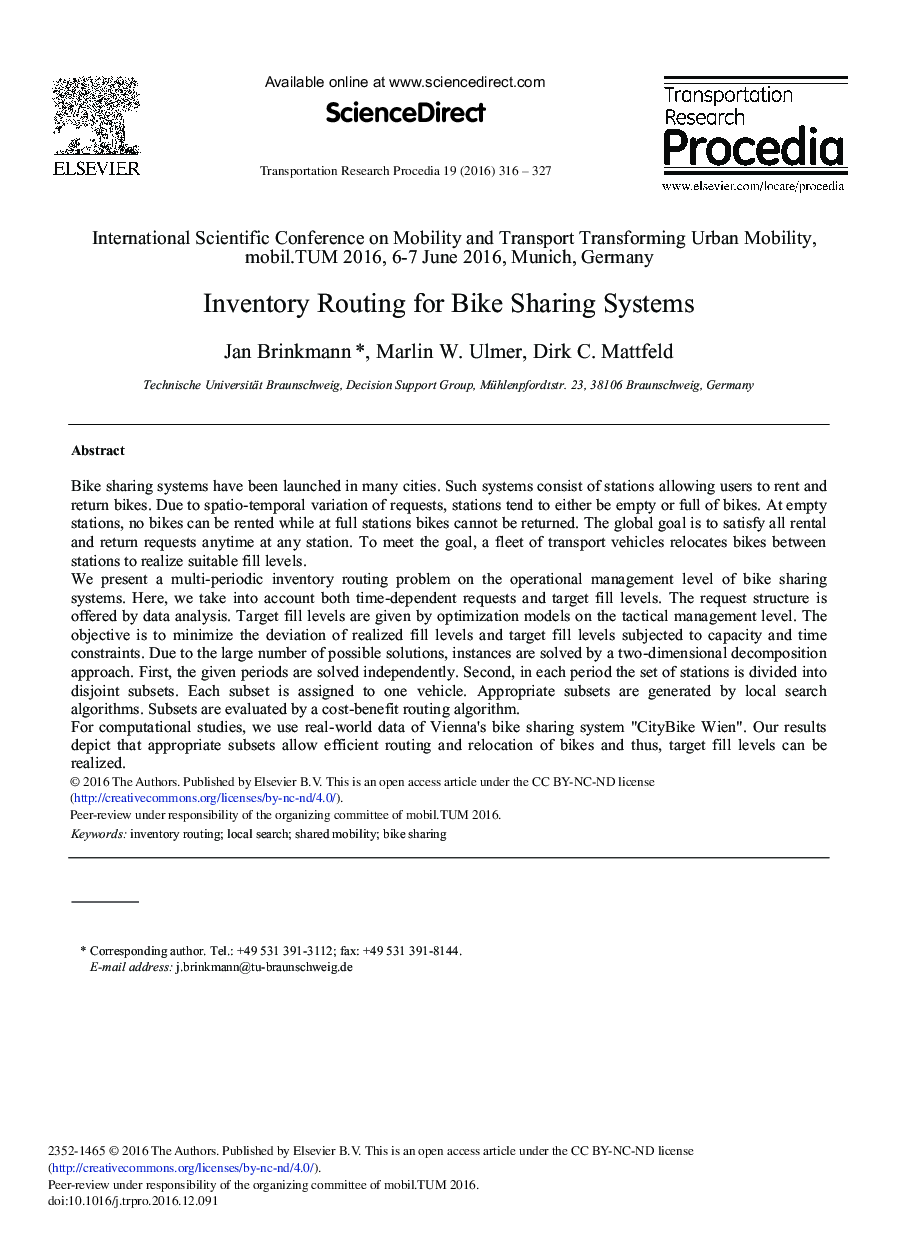| Article ID | Journal | Published Year | Pages | File Type |
|---|---|---|---|---|
| 5125484 | Transportation Research Procedia | 2016 | 12 Pages |
Bike sharing systems have been launched in many cities. Such systems consist of stations allowing users to rent and return bikes. Due to spatio-temporal variation of requests, stationstend to either be empty or full of bikes. At empty stations, no bikes can be rented while at full stations bikes cannot be returned. The global goal is tosatisfyall rental and return requests anytime at any station. To meet the goal, a fleet of transport vehicles relocates bikes between stations to realize suitable fill levels.We present a multi-periodic inventory routing problem on the operational management level of bike sharing systems. Here, we take into account both time-dependentrequests and target fill levels. The request structureis offered by data analysis. Target fill levels are given by optimization models on the tactical management level. The objective is to minimize the deviation of realizedfill levels andtarget fill levels subjected to capacity and time constraints. Due to the large number of possible solutions, instances are solved by a two-dimensional decomposition approach. First, the given periods are solved independently. Second, in each period the set of stations is divided into disjoint subsets. Each subset is assigned to one vehicle. Appropriate subsets are generated by local search algorithms. Subsets are evaluated by a cost-benefit routing algorithm.For computational studies, we use real-world data of Vienna's bike sharing system “CityBike Wien”. Our results depict that appropriate subsets allow efficient routing and relocation of bikes and thus, target fill levels can be realized.
